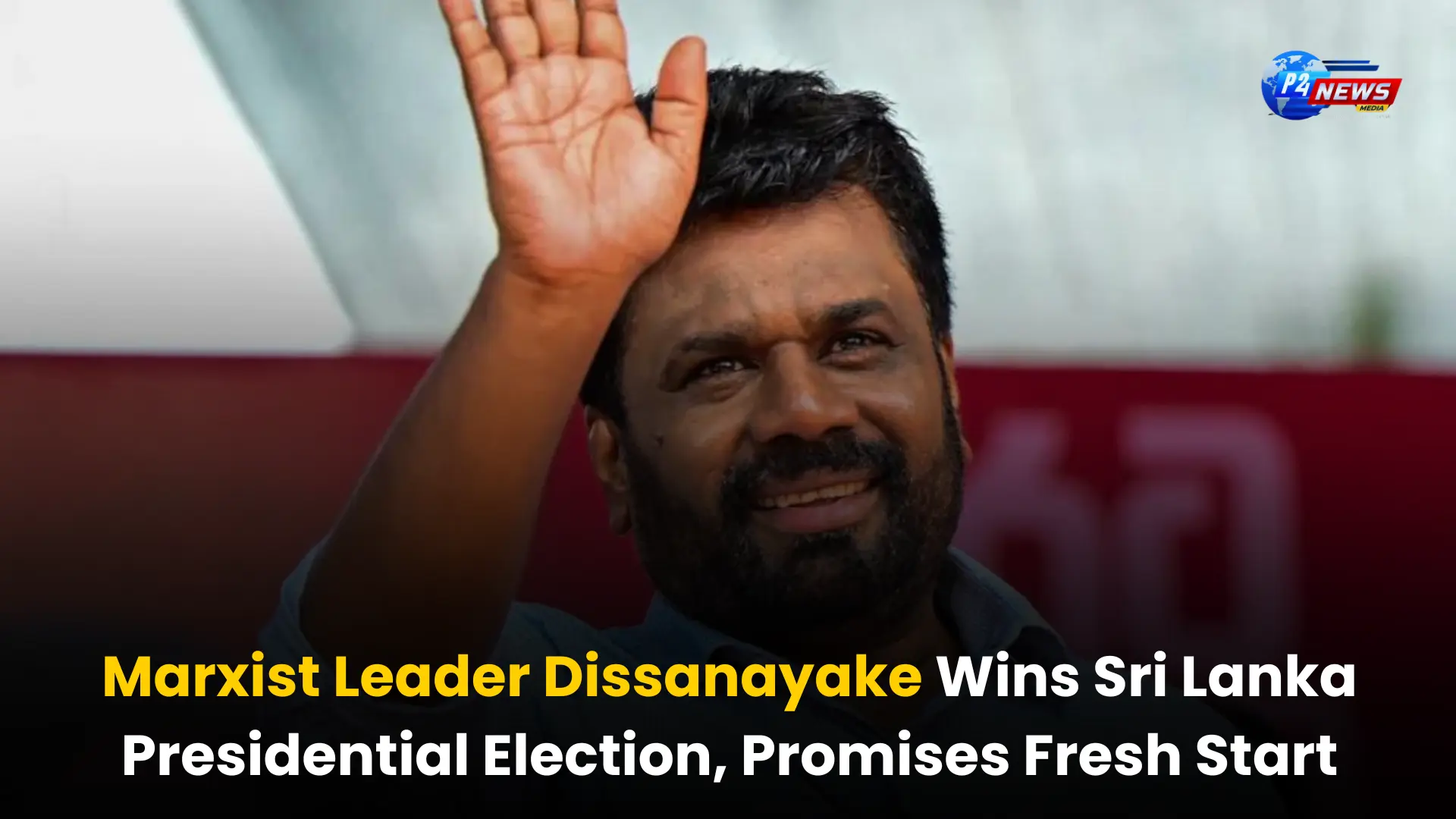Marxist leader Anura Kumara Dissanayake has emerged victorious in Sri Lanka's presidential election, unseating the incumbent President Ranil Wickremesinghe. In his victory speech,
Marxist leader Anura Kumara Dissanayake has emerged victorious in Sri Lanka's presidential election, unseating the incumbent President Ranil Wickremesinghe. In his victory speech,
Marxist leader Anura Kumara Dissanayake has emerged victorious in Sri Lanka's presidential election, unseating the incumbent President Ranil Wickremesinghe. In his victory speech, Dissanayake emphasized the need for national unity and called for the collective strength of all communities in Sri Lanka, including Sinhalese, Tamils, Muslims, and others, to build a new future for the nation. He expressed optimism for a "fresh start" and a new era of renaissance driven by shared vision and strength, which he believes is essential for realizing the country's aspirations.
The Sri Lankan Election Commission officially announced that Dissanayake, 55, secured 42.31% of the vote in Saturday's election. Opposition leader Sajith Premadasa finished second, while the incumbent President Ranil Wickremesinghe placed a distant third. This victory marks a significant shift for Dissanayake's Marxist party, which had previously struggled to gain political traction after leading two failed uprisings in the 1970s and 1980s, resulting in over 80,000 deaths.
The high voter turnout underscored the public's desire for change, with approximately 75% of the country’s 17 million eligible voters casting their ballots. Polling was conducted at over 13,400 stations across 22 electoral districts, reflecting the widespread engagement of the electorate in this pivotal election.
In the wake of his victory, Dissanayake has pledged not to abolish the controversial $2.9 billion International Monetary Fund (IMF) bailout agreement but to renegotiate its terms. This move comes amid growing public discontent over the economic measures imposed under the bailout, which many believe have contributed to the country’s financial hardships. Dissanayake’s stance on the IMF deal was a central issue during the campaign, and his victory is widely seen as a referendum on the current economic policies and the way forward for Sri Lanka’s financial recovery.
Like
Dislike
Love
Angry
Sad
Funny
Pray
9th Ayurveda Day in Melbourne: A Celebration of Ayurvedic Innovations and Global Health Impact
November 10, 2024Australia’s Terror Alert Jumps to ‘Probable’: What You Need to Know About the Increased Risk
August 05, 2024🍪 We Value Your Privacy and Experience Hi there! We use cookies to enhance your browsing experience, provide personalized content, and analyze site traffic. By continuing to use our site, you consent to our use of cookies.







Comments 0